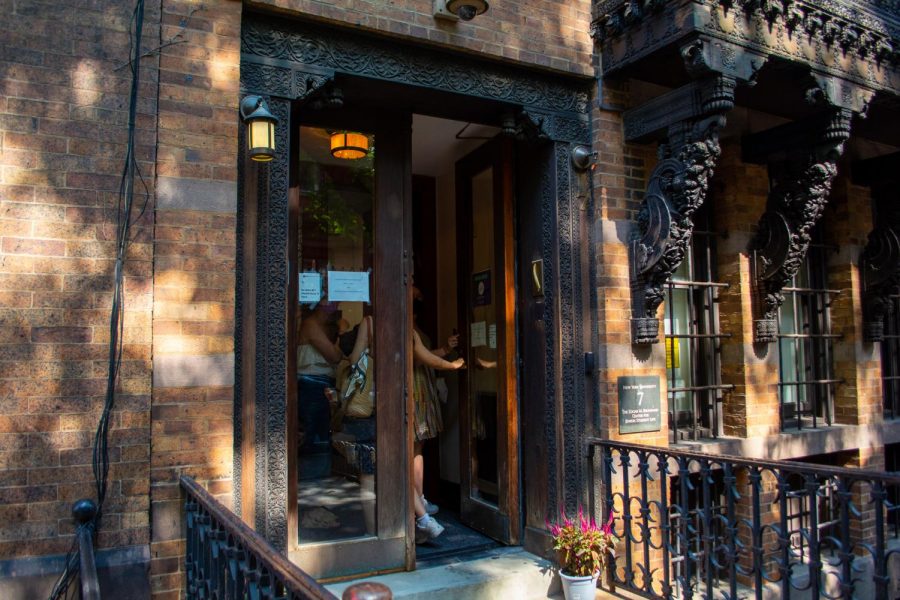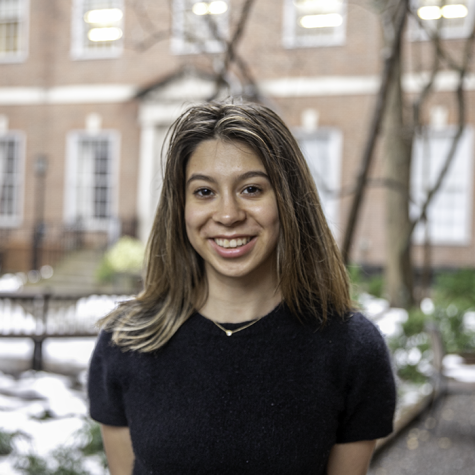Observing Yom Kippur during COVID-19
Jewish students reflect on the significance of Yom Kippur during COVID-19 while trying to follow university guidelines.
Yom Kippur, the holiest day in the Jewish calendar, started yesterday evening. Many students are finding it hard to break fast while also complying with NYU’s restrictions. (Staff Photo by Manasa Gudavalli)
September 16, 2021
Wednesday evening marked the start of Yom Kippur, one of the most sacred holidays in the Jewish religion. Widely translated as the Day of Atonement, Yom Kippur is a period that follows Rosh Hashanah and serves as a time for reflection, often commemorated through prayer and fasting.
Unlike the last couple of years impacted by the pandemic, this year represents the start of a new era for many religious holidays like Yom Kippur. While many COVID-19 regulations remain, increased vaccination rates in the city have made it possible for some to safely gather — an important aspect of the Jewish holiday.
Prior to COVID-19, many individuals of the Jewish faith prayed together at the synagogue. CAS senior Sam Reinker notes that the communal nature of the holiday makes it easier to fast, which strengthens his spirituality.
“The fast is about connecting with your community and it’s a lot easier when you have other people around you experiencing it as well,” Reinker said.
“Breaking fast is what everyone does at the end; you eat together,” CAS senior Rachel Bell said. Fasting is a key element of the holiday — according to Bell, the manner in which people break their fast varies between localities.
“Most Ashkenazi Jews eat white fish and bagels, while Sephardic Jews eat fruit and nuts,” Bell said. “My grandpa is Moroccan so we usually eat fish and lox and bagels, which is the most common.”
Unlike Bell, Reinker said that his family typically eats challah, a dense, sweet braided bread made from egg yolks and yeast. However, when he is at school, Reinker opts for convenience rather than tradition.
“I usually go for anything sweet and rich, but the prepared meals from Trader Joe’s are always a good thing to break fast,” Reinker said.
This year NYU’s Jewish student body will have to get creative with how they break their fast. In light of COVID-19, the university updated its dining regulations, making it difficult for students to eat together indoors. Instead, NYU is urging students to eat their meals outdoors.
However, Bell said that some outdoor areas such as Washington Square Park are often crowded which can deter some students looking to enjoy a safe communal meal. Despite these restrictions, Bell intends on breaking her fast with bagels outside of the Bronfman Center.
Reinker doesn’t have any specific plans for breaking fast this year, but hopes he can do it as part of a community.
In addition to fasting, some students choose not to attend classes to focus on the holiday, which is required by Jewish law. Even though the holiday occurs at the beginning of the semester, Reinker admits that missing a few classes makes it easy to fall behind.
Reinker suggests that NYU should take advantage of the technology used for virtual learning, like recording classes, so that students can observe the holiday without stressing over school.
In the meantime, NYU’s Jewish student body will continue to find new ways to adapt to COVID-19 with university guidelines that affect their ability to celebrate Yom Kippur, and enjoy the breaking of their fast.
Contact Gabby Lozano at [email protected].

























































































































































